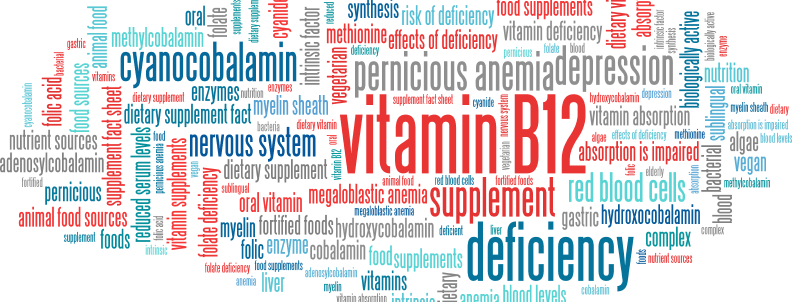Vitamin B12: Diet, Age and Supplementation
An ongoing 18 year long study challenges several commonly accepted truths about B12 deficiency. If you are young and eat meat you likely believe you have a reduced risk of deficiency – maybe not…
Study Found 39% at Risk of B12 Deficiency
Most of us believe if we follow a diet heavy in animal products including meat, eggs or dairy, we should have enough vitamin B12 in our bodies. Researchers at Tuft’s University suggest that this may not be the case. They cite the Framingham Offspring Study which found 39% of subjects were at risk of becoming vitamin B12 deficient.(1) An important detail is the cross generational nature of this study: 26-49, 50-64 and 65-83.
Framingham Offspring directly contradicts the commonly held view being passed down to dinner tables over the generations: that heavy meat eaters are less likely to be clinically deficient than the rest of the population. In fact, participants who had the best vitamin B12 levels were those that ate fortified cereals.
Vitamin Absorption and Resulting Deficiencies are not Necessarily Symptoms of Ageing
Remember when we noted that the Framingham Offspring was cross generational? The study participants most at risk of vitamin B12 deficiency provide insights on the relevance of age to vitamin absorption. Surprisingly, vitamin B12 deficiency is to date no more common among the older portion of the sample. Moreover, this finding challenges the widespread belief that absorption and resulting deficiencies are necessarily a symptom of ageing.





